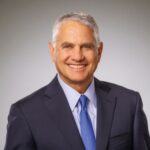
Princeton Health President, CEO Barry Rabner, to Step Down by 2021
On Jul 29, 2020Barry S. Rabner, who led Penn Medicine Princeton Health from a small community health system into a regional leader widely recognized for high quality, safety, advanced technology, and community engagement, has announced that he will step down as president and CEO.

“The greatest privilege of my career is to serve as the president and CEO of Princeton Health and I could not be more grateful for that opportunity,” Rabner said. “I am proud to work with such dedicated colleagues, donors, elected officials and people in the community we serve. I am very fortunate to be able to do work that I love with wonderful people.”
During Rabner’s tenure:
- Princeton Health’s acute-care hospital, Princeton Medical Center (PMC), received multiple quality recognitions from U.S. News & World Report, The Joint Commission, and The Leapfrog Group. PMC also earned Magnet® status, the highest institutional recognition for nursing excellence, and designation as a leader in healthcare equality for individuals who identify as LGBTQ.
- Princeton House Behavioral Health nearly doubled its outpatient capacity and added a number of innovative, specialized programs, including an inpatient service focused on treating first responders who are dealing with post-traumatic stress disorder and other behavioral health issues related to the nature of their jobs.
- The medical staff’s membership increased five-fold and now includes practitioners from more than 85 specialties and subspecialties.
- Princeton Health’s employed physician practice, Princeton Medicine Physicians, was established and has since grown into a multispecialty group with 200 providers and 25 locations.
- Princeton Health initiated successful partnerships in fitness and wellness, ambulatory surgery, gastroenterology, and other clinical services, including a partnership with Children’s Hospital of Philadelphia to enhance every level of neonatal and pediatric care at PMC.
“Barry’s extraordinary accomplishments over the past 18 years at Penn Medicine Princeton Health have been marked by his leadership attributes, including his integrity and his deep commitment to patients, medical staff, employees and the community,” said Anthony Kuczinski, Chairman, Princeton Health Board of Trustees. “The leadership attributes have guided his vision and his ability to bring about countless positive changes that will impact the organization for decades to come.”
“Barry Rabner has continuously raised the bar for Princeton Health, in everything from clinical outcomes to patient satisfaction levels to finding new and meaningful ways to engage the community,” said Kevin Mahoney, CEO of the University of Pennsylvania Health System. “His ability to inspire others to strive for excellence every day has led to a sustained record of success and has helped to make Princeton Health such a highly valued member of the University of Pennsylvania Health System.”
Shortly after joining Princeton Health in 2002, Rabner spearheaded the establishment of Princeton Health Community Wellness, which provides a comprehensive curriculum of health education programs as well as free or low-cost health screenings, support groups, and CPR training. Last year, Community Wellness provided more than 2,000 programs, serving approximately 50,000 individuals.
Rabner also presided over two significant milestones in its history: the design and construction of the new hospital and health campus that opened in 2012 and the decision to join the University of Pennsylvania Health System in 2018.
The new hospital was financed in part by a $171 million capital campaign — the most successful hospital capital campaign in New Jersey’s history and the largest for a health system of Princeton’s size in the United States. The new PMC opened in 2012 on a campus that includes an adult medical daycare, child daycare, a fitness and wellness center, assisted living and memory care, senior independent living, pediatric outpatient care, long-term care, sub-acute care and a large park for the community. An ambulatory cancer center is under development.
Rabner serves on the boards of the Center for Health Design and Rider University — where he also serves as adjunct faculty and Executive in Residence — and on the editorial board of HERD, a health environment research and design journal.
To access more business news, visit NJB News Now.
Related Articles:





